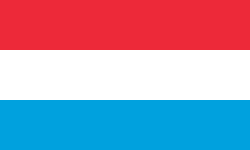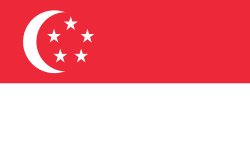ERP solution for the Fashion and Textile sector
In such a dynamic sector as fashion and textiles, where trends evolve rapidly, and competition is intense, efficient operations management is essential to stay competitive. This is where an ERP system comes in, an integrated tool that refines and perfects business processes.
The benefits of using an ERP for this sector include
Increased Productivity
Optimizing processes through an ERP solution allows fashion and textile businesses to improve overall efficiency. For instance, a ready-to-wear company can implement an ERP to automate order tracking and inventory management, reducing the time spent on these tasks and freeing up employees to focus on higher-value activities. By organizing workflows in this way, an ERP not only saves time but also optimizes resources and increases overall company productivity.

Reduced Operational Costs
By eliminating inefficiencies and improving processes, an ERP system offers fashion and textile businesses the opportunity to reduce operational expenses. For example, a textile manufacturer can use an ERP to effectively manage raw material purchases, identifying the most cost-effective suppliers and negotiating favorable agreements.
Similarly, a luxury brand can leverage an ERP to refine its production methods and minimize costs associated with labor and materials. By structuring operational flows in this manner, an ERP promotes timely efficiency and effective resource management, leading to a significant increase in overall company productivity.

Improved Business Process Management
Adopting an ERP encourages standardization of operational activities at all levels of the organization, facilitating coordination and collaboration between different departments. For example, in the textile design field, a company can leverage an ERP to harmonize its product design and development methods.
By consolidating these processes within a centralized platform, the company can ensure consistency in collection management, better traceability of production stages, and enhanced forecasting of material and labor needs. By unifying practices and eliminating information silos, an ERP thus improves operational efficiency and strengthens the company's competitiveness in such a demanding sector as fashion and textiles.

Key Features of an ERP for the Fashion and Textile Industry

Business Intelligence and Reporting
Analyze trends, evaluate performance, and draw valuable insights from your ERP software to guide your company's growth. Make better decisions through in-depth data analysis and customized reports for the fashion and textile industry.

Customer Relationship Management (CRM) and Sales Management
Cultivate strong relationships with your customers and increase sales with a comprehensive and efficient management solution. Track leads, automate sales processes, and personalize your communication to boost your company's revenue in this sector.

Inventory Management
Optimize inventory management and be prepared to meet all demands in the fashion and textile sector. Track stock levels, manage supplies, and minimize stockouts to ensure customer satisfaction.
Production Management
Plan and track your production in your ERP to optimize supply chain efficiency and ensure product quality. Manage work orders, track production times, and ensure timely delivery to meet the requirements of customers for the fashion and textile industry.

Human Resources Management
Enhance employee performance and satisfaction with simplified HR management. Manage their data, automate administrative processes, and ensure regulatory compliance to establish transparent and efficient personnel management in the fashion and textile sector.

Point of Sale System
Optimize in-store sales operations with an intuitive point of sale system for the fashion and textile industry. Manage transactions, track your inventory in real-time, and provide a seamless shopping experience for your customers.

Purchasing Management
Simplify the procurement process to reduce costs and optimize operations in the fashion and textile sector. Automate workflows, manage suppliers, and optimize purchase contracts to ensure the quality of products and services.
CHOOSE THE RIGHT ERP FOR YOUR BUSINESS
ODOO ERP
Odoo, with its flexibility and customization, suits the fashion and textile industry by adapting to inventory, orders, production, and sales, integrating seamlessly with existing tools.
Odoo GOLD PARTNER |
 |
Worldwide ERP solution |
Based Cloud ERP Solution or On Premise ERP Solution |
Prices per users |
Adapted for small businesses and mid-market businesses |
+40 000 apps availables on Odoo Marketplace |
| Discover Odoo ERP |
The Various Activities of Companies Operating in this Sector
The typologies of companies operating in the fashion and textile industry are varied and include:
Ready-to-Wear Companies
These companies design, produce, and market ready-to-wear clothing for men, women, and children. They often offer a wide range of products to cater to different styles and fashion trends.
Ready-to-Wear Stores
These businesses specialize in selling ready-to-wear clothing, targeting a broad audience including men, women, and children. They offer a variety of products to adapt to current tastes and trends. Their collections often include pieces for everyday wear, work, and special occasions, with particular attention to accessibility and fast stock rotation to keep up with seasonal fashion.
Fashion Houses
These companies specialize in creating and manufacturing high-end, bespoke clothing. They focus on quality materials, precise tailoring, and customized designs for a discerning clientele.
Textile Manufacturers
These businesses produce a variety of fabrics used in clothing, furnishings, and other textile products. They may specialize in different types of weaving, knitting, or textile printing.
Fashion Retailers
These companies sell clothing, accessories, and fashion products directly to consumers. They can operate through physical stores, online boutiques, or a combination of both.
Luxury Brands
These companies target the high-end segment of the fashion market, offering superior quality products often associated with a high social status. They emphasize exclusivity, craftsmanship, and brand prestige.
Textile Design Companies
These businesses focus on creating patterns and designs for fabrics used in clothing, furnishings, and accessories. They may collaborate with fashion brands or provide design services to other textile companies.
Captivea, Your ERP Integrator to Guide You
Launch your project with us now !
Captivea presents itself as your trusted partner for ERP integration in the fashion and textile sector. With our expertise and experience, we are here to guide you in choosing, implementing, and optimizing an ERP solution tailored to your specific needs.
We understand that each company has its own unique challenges and requirements. That's why we work closely with you to understand your business needs and goals. With our in-depth knowledge of ERP solutions, we will help you choose the best option, whether it's an all-in-one or modular solution, to meet your current and future needs.
FAQ for ERP Solutions in the Fashion and Textile Industry
Cloud ERP software is an integrated tool that helps streamline and optimize various business processes within the fashion industry. By implementing an ERP system, fashion businesses can enhance productivity, reduce operational costs, and improve overall efficiency. Using specialized ERP solutions also provides better inventory management and supply chain coordination, which are crucial for staying competitive in this dynamic sector.
ERP system implementation in the fashion industry involves integrating an ERP system that centralizes and automates various processes such as inventory management, manufacturing planning, and supply chain management. This leads to improved quality control, better resource utilization, and increased customer satisfaction. By adopting enterprise resource planning, the fashion industry can achieve significant business growth.
Key features of ERP solutions for the fashion industry include:
- Inventory management: Efficiently track and manage stock levels to avoid stockouts and overstock situations.
- Production planning: Optimize production schedules and workflows to meet demand efficiently.
- Financial management: Streamline financial operations and enhance decision-making with accurate financial data.
- Quality control: Ensure high standards in production with integrated quality control modules.
- Customer relationship management: Maintain strong customer relationships and boost sales.
- Warehouse management: Optimize storage and logistics for better operational efficiency.
Fashion ERP software enhances stock management by providing real-time visibility into stock levels, automating reorder processes, and optimizing storage space. With an inventory control module, the fashion industry can better manage their inventory, reduce costs, and ensure timely availability of products. This leads to more efficient supply chain operations and improved warehouse management.
Cloud ERP solutions offer flexibility, scalability, and cost-effectiveness for fashion businesses. By using cloud ERP solutions, companies can access their ERP solutions from anywhere, allowing for better collaboration and faster decision-making. Cloud solutions also provide seamless updates and maintenance, ensuring that businesses always have access to the latest features and security enhancements.
In textile manufacturing, an ERP system supports quality control by integrating checks and standards into the production process. With a dedicated quality control module, manufacturers can monitor production quality, track defects, and implement corrective actions promptly. This ensures that the final products meet the required standards and enhances overall product quality.
ERP system streamlines financial planning and financial management by providing comprehensive tools for budgeting, forecasting, and financial reporting. The fashion industry can gain better control over their finances, improve accuracy in financial data, and make informed decisions that support long-term sustainability and profitability.
ERP software plays a crucial role in enhancing management of the supply chain by providing real-time visibility into supply chain operations, optimizing logistics, and improving coordination between suppliers, manufacturers, and retailers. By streamlining these processes, an ERP system ensures that the supply chain is efficient, responsive, and cost-effective.
An ERP system helps the fashion industry achieve a competitive edge by improving operational efficiency, reducing costs, and enhancing product quality. By integrating all business functions into a single platform, ERP solutions enable better decision-making, faster response to market changes, and improved customer satisfaction. This comprehensive approach ensures that businesses remain competitive in the fast-paced fashion industry.
When choosing an Enterprise Resource Planning solution, businesses should consider their specific needs, the scalability of the solution, the ease of integration with existing systems, and the total cost of ownership. It's also important to evaluate the support and training offered by the Enterprise Resource Planning provider to ensure smooth ERP implementation and long-term success.






